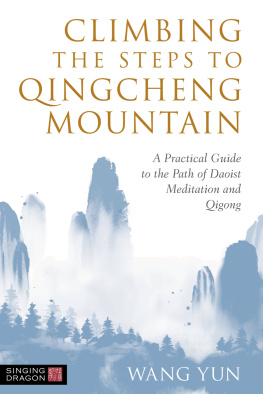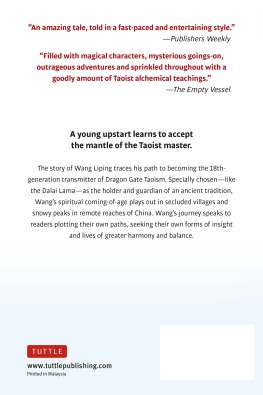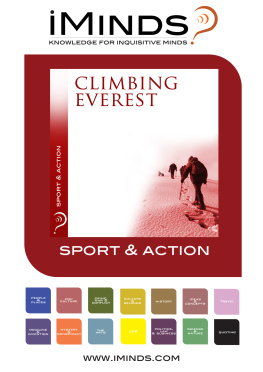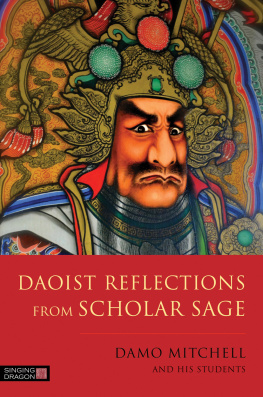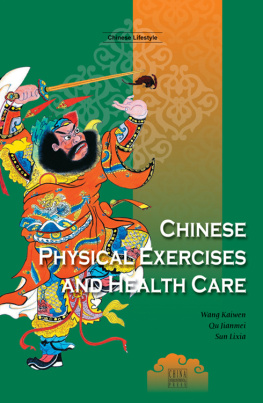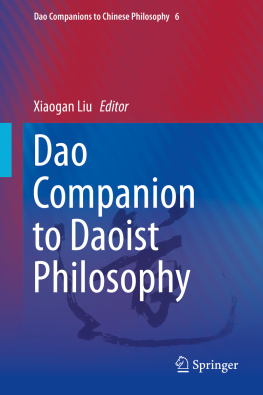
CLIMBING
THE STEPS TO
QINGCHENG
MOUNTAIN
A Practical Guide
to the Path of Daoist
Meditation and
Qigong
WANG YUN

C ONTENTS
E DITOR S P REFACE
It was a time of celebration for the students of Wang Yun when Climbing the Steps to Qingcheng Mountain came out in the Chinese language. Indeed, we had long had access to this knowledge and much more in the course of our study with him; yet he had always offered it to us following the traditional way: that is, when the opportunity arose and of course, orally. Emphasis on oral transmission is a common characteristic of traditional knowledge in both the East and the West, but despite its many virtues, the language barrier for foreigners can be a real issue, and all the more so with our woefully faulty memories.
This book fulfilled many of our wishes. It offered a comprehensive overview of the foundations of qigong and Daoist meditation, as well as hinting at further developments of these practices. It also offered us some of the lore that surrounds this millenary tradition and its famed immortals, men who remain shrouded in mystery despite their legendary status. More importantly, it offered us a glimpse into the life and apprenticeship of our own teacher, someone who, in many ways, seems to have strode out of these historical mists himself. Indeed, in the same vein as the wily and self-deprecating ancestors of his lineage, catching Wang Yun in the mood to talk about his own story oftentimes feels like catching the trail of a mountain hermit.
Wang Yun is a prolific author, and writes on many topics. He not only traverses the three peaks of Daoism, Confucianism and Buddhism, but tethers all of his knowledge to earth with his gentle insistence on grounding all advice and wisdom in daily life. It was no easy task, then, to choose which face of the mountain would appeal to a Western adventurer without hurling them into the clouds.
Wang Yun has said that Daoism, to this day, keeps a special place in his heart. This sentiment is echoed in our team of translators, and we felt greatly enthused at the idea of sharing with our own cultures the lore of immortals and the practical methods for health cultivation they have left to posterity. Also, we share the belief that Daoisms potential contribution to society as a viable form of medicine, and how it can affect health in everything from diet, to supplements, to exercise, to the mind, has only begun to be explored. In short, we believed that publishing this book in the English language would serve the Daoist teachings that are so dear to us, and as well bring tangible benefits to the reader.
In many ways, this lore is alive and well among us in the form of stories and firsthand accounts of people for whom qigong was decisive in assisting their ailments, from the commonplace to the potentially fatal, and granting them a long and healthy life. Wang Yun once recounted the anecdote of an elderly lady he had met while studying with his Daoist master as a youth. Some decades had passed since their last encounter and he one day came across her while walking in the street. Although she was well into her 90s, he described her as having a brisk step, a straight spine, and lively eyes.
The benefits of a regular qigong routine are quite numerous. An inexhaustive list includes: better circulation, digestion and immunity; higher and more stable energy levels; the reduction of chronic ailments, bodily pain and old injuries; better sleep quality; a clearer mind; and stabler emotions. A sustained and diligent practice could reap such results as the complete mending of old injuries and the disappearance of any chronic ailment, as well as very high levels of immunity and vitality. Many on our team and our class attendees who started studying with Wang Yun found the regular practice of qigong combined with other methods, such as meditation and lifestyle changes, could be a cure for depression, alcohol and drug addiction, short tempers, insomnia, anxiety, and even relationship problems. In our gratitude, we have endeavored to share this treasure of health and vitality we have received by means of certain outreach programs, such as teaching in schools throughout Taiwan, and we now plan to do so with the growing population of the elderly.
The practice of qigong is intended to be a complementary therapeutic practice, its primary goal being prevention of disease through the strengthening of the bodys immune and musculoskeletal systems, and the regulation of respiratory and circulatory functions. It is not intended as a replacement from professional and timely medical care. The reader is urged to consult a medical professional on any matter concerning their health, and to follow the given diagnoses and prescriptions.
Harking back to its classical, poetical roots, the Chinese language relies heavily on figures of speech such as hyperbole and metaphors, in order to evoke strong, multisensorial responses in the reader. While rendered in English translation some statements may seem definitive absolutes, they are rather meant to convey the rhetorical strength of a given argument in the original: they are to be taken for their suggestive, evocative power, rather than literally.
But let us come back to Mount Qingcheng, one of Chinas mythical mountains. From it, generations have sprouted forth to discover, realize, and preserve the recipes that stimulate the deep potential of the human body, beginning with the great Zhang Daoling. As the story goes, he attained immortality and ascended to the heavens. The title we have chosen for this English translation is a hint at the ascension undertaken by Wang Yun as a young seeker, of the inner journey he took and one he now takes the reader on.
This translation has spanned the course of two years and has been an odyssey of sorts for our team. We feel it necessary to introduce to the reader the wild and vast ocean in which ourand by the same token, yourvoyage takes place: the Chinese language. The Chinese language is pictographic and is the culmination of over 5,000 years of transformation from the original ideograms into the 50,000 or so that exist in the most complete dictionaries. The characters are thus the product of history and a scholar could tell fascinating stories about the evolution and multiplicity of meaning within each one. Some are exclusive to a certain context, such as medicine, Buddhism, and of course Daoism. Some characters also take an entirely different meaning when assembled with other characters, and some such grouping of characters can be obscure to even a highly literate native speaker.
The beauty and clarity of Wang Yuns prose in the original Chinese is noteworthy, and similarly, he is a formidably articulate speaker who can meld equally formidable, ancient forms of the Chinese language, and poetry, right into his speech. Most of the time, however, he speaks in a very down-to-earth and practical tone while citing modern writersboth Chinese and foreignalongside Confucius, Laozi, or the Buddha. Its not hard to imagine that as foreign students of Wang Yun, we can at once be mesmerized and utterly nonplussed at times. In more formal class settings, we will sometimes turn to our Taiwanese counterparts to ask: What did that mean? to be answered with an embarrassed Im not sure or a frank I have no idea. And yet he is also dear to his students for his humor and lightheartedness, always willing to patiently hear out their troubles and offer a new perspective, or intersperse a lecture on Confucian ethics with humorous anecdotes and enchanting stories.
Next page
